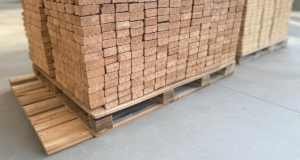 Jerusalem (AP) – Pope Francis announced yesterday that he would be visiting the Holy Land in May of this year, setting off a scramble among Israelis and Palestinians to score propaganda points in their ongoing conflict and to leverage the publicity of the visit to imply papal endorsement of their respective positions.
Jerusalem (AP) – Pope Francis announced yesterday that he would be visiting the Holy Land in May of this year, setting off a scramble among Israelis and Palestinians to score propaganda points in their ongoing conflict and to leverage the publicity of the visit to imply papal endorsement of their respective positions.
Francis announced his intention to a crowd in Rome, saying that he hopes to bolster ongoing efforts to reach a peace agreement between Israel and the Palestinians. US-brokered talks have produced little progress on the remaining core issues, including the status of Jerusalem; the fate of Palestinian refugees and Jewish settlements; borders; and whether there must be explicit recognition of Israel as a Jewish state. Considering the weightiness of those issues, the pontiff’s announcement was immediately seized upon by representatives of both sides as an important vehicle through which to demonstrate the virtues and manifest justice of their own positions, to the exclusion of the other side’s.
Francis is the third pope in a row to visit Israel and the Palestinian territories; John Paul II did so in 2000 and his successor Benedict XVI followed in 2009. Both times, as expected, politicians and negotiators on opposing sides of the divide attempted to transform every possible papal move into an indication of Vatican support for one side or the other.
Similar developments are expected this May, when the pope will visit important Christian pilgrimage sites and meet with Israeli, Palestinian, and Jordanian leaders in a visit also aimed at strengthening relations with Orthodox Christianity, from which Roman Catholicism spit in the eleventh century. A parallel tumult of diplomatic and political maneuvering has characterized the Christian reaction to the news, with both Catholic and Orthodox partisans angling to score rhetorical points in the nearly thousand-year-old dispute over, among other issues, the primacy of the pope.
Francis’s first stop will be in Amman, Jordan, where the focus will be more on repairing relations with the Muslim world than on the Arab-Israeli conflict, but that conflict is sure to intrude on the discussion between Francis and King Abdullah, whose country is populated by large numbers of Palestinian refugees and their descendants. Only afterwards will the pope travel west to Jerusalem and Bethlehem, where Israelis and Palestinians will try to portray each papal visit to a site in contested territory as a tacit or explicit statement of support for either perpetual Israeli control or the need to bring it to an end.
Vatican spokesman Waitwait Dontelmi said Francis had decided that the trip would take place in May because that is when the current round of US-brokered talks is expected to end, but which the Israeli Foreign Ministry immediately announced was calculated to be associated with Israeli Independence Day, which usually occurs in May.



